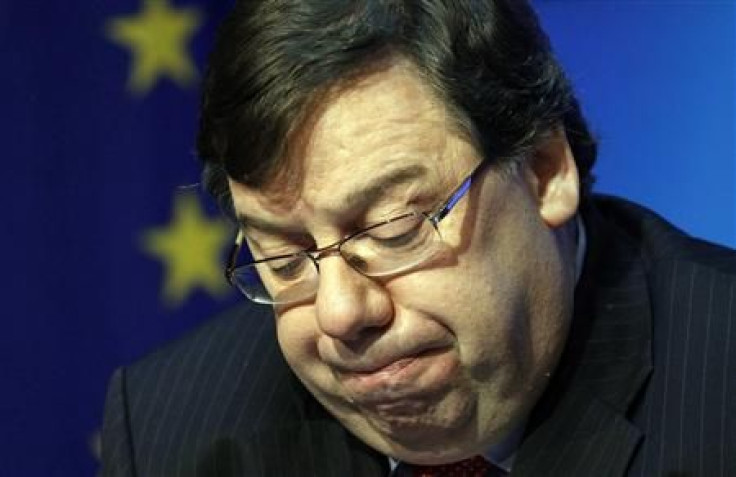Moody’s cuts Ireland rating by five notches

Moody's Investor Services on Friday downgraded debt-stricken Ireland's rating by five notches, citing the country’s troubled banking sector, uncertain economic outlook and decline in the Irish government's financial strength.
The rating agency downgraded Ireland’s rating from Aa2 to Baa1 with a negative outlook.
“Negative outlook on the ratings of the government of Ireland is based on our forward looking view on the risk that the Irish government's financial strength could decline further if economic growth were to be weaker than currently projected or the costs of stabilizing the banking system turn out to be higher than currently forecast,” said Moody’s.
In October, Moody’s kept Ireland’s rating under review for possible downgrade after the Irish government announced more recapitalization measures for the economy.
The credit rating agency had previously cut Ireland's sovereign bond rating to Aa2 from Aa1 in July and assigned a stable outlook, citing government's loss of financial strength.
Ireland’s parliament on Wednesday agreed to a controversial 85 billion-euro ($112.5 billion) bailout loan from the European Union and International Monetary Fund.
“Ireland's sovereign creditworthiness has suffered from the repeated crystallization of bank related contingent liabilities on the government's balance sheet,” said Dietmar Hornung, a lead analyst for Ireland at Moody’s.
Recently, the Irish government committed to infuse 50 billion euro ($66.1 billion) of capital into the country’s banking sector -- an amount that represented 32 percent of nation’s gross domestic product (GDP).
Moody’s said Ireland’s fiscal austerity measures are likely weigh on the domestic demand resulting in increased uncertain economic prospects.
“Moreover, the announced EUR15 billion (approximately 9.5 percent of GDP) reduction in net expenditure over the next four years to reduce the general government budget deficit to 3 percent of GDP represents a further considerable drag on the country's recovery prospects,” Moody’s said.
Moody’s said that rising capital requirements of banking sector, combined with uncertain economic outlook, will increase Ireland’s debt to 120 percent of the output by 2013, nearly twofold increase from 66 percent in 2009.
However, the agency said the Irish economy's competitiveness and its business-friendly tax environment are credit-positive.
“There are a number of reasons why Ireland's rating remains within the investment-grade category, said Hornung. “Ireland's commitment to fiscal consolidation and structural reforms is impressive, as represented by the four-year fiscal plan and the budget 2011.”
Ireland's gross domestic product recorded a marginal rise of 0.5 percent in the third quarter on a sequential basis. The marginal increase was powered by a 3.6 percent increase in exports and a boost from inventories.
A forecast by ratings firm Ernst and Young said this week Ireland's GDP will drop by 2.3 percent next year, whereas according to government prediction the economy would grow 1.75 percent in 2011. It also said the Irish economy will not rebound until 2013.
Moody’s also downgraded by five notches to Baa1 from Aa2 the rating of Ireland's National Asset Management Agency (NAMA), whose debt is fully and unconditionally guaranteed by the government of Ireland.
© Copyright IBTimes 2024. All rights reserved.











